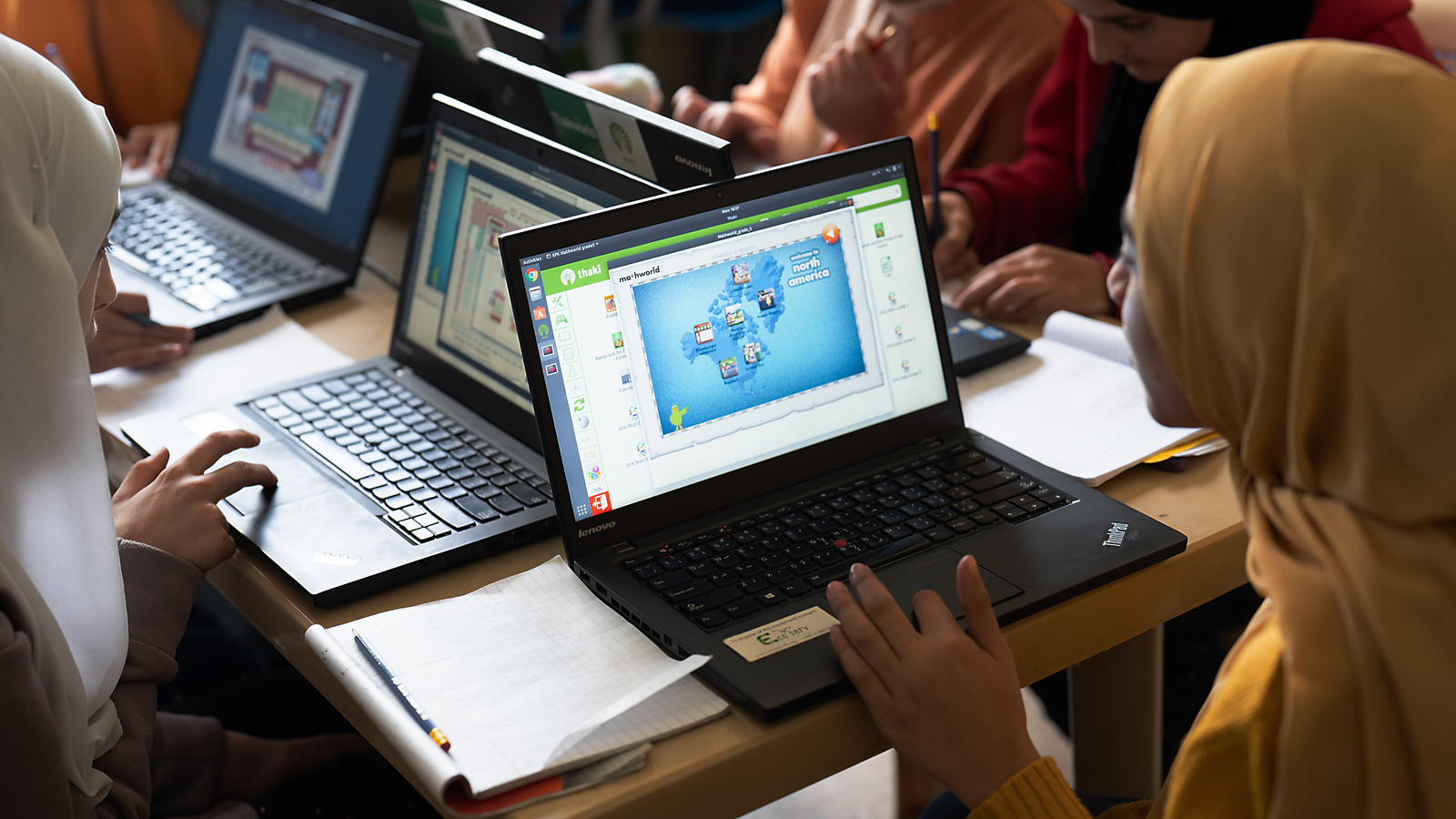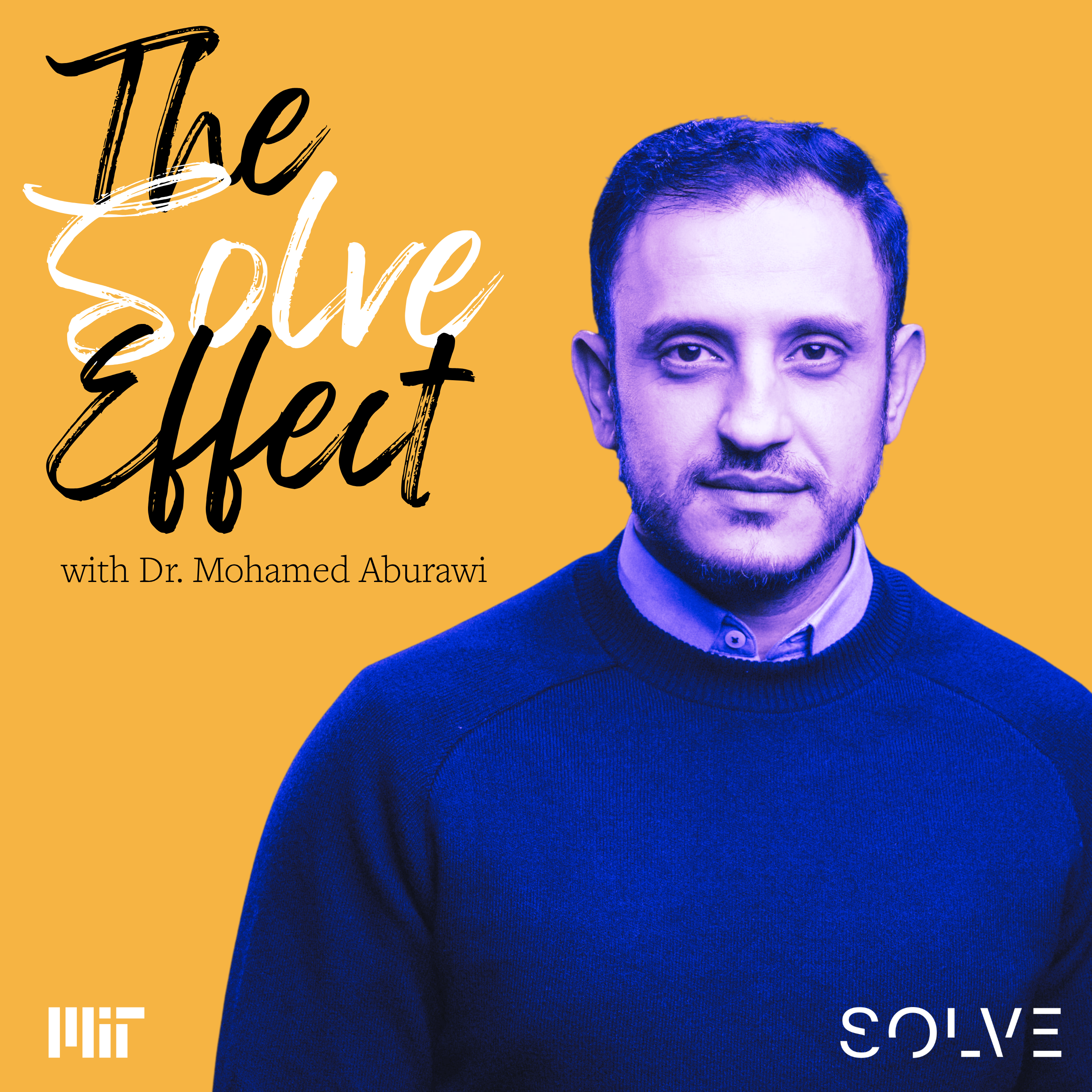
Solve at MIT Insights: Designing Holistic Solutions to Drive Change for Women
“Before even building a school, you need to make a well to make the bricks,” said Noëlla Coursaris Musunka, reflecting on her experience founding Malaika, a school for girls in the village of Kalebuka, Democratic Republic of the Congo. As she built the program, it quickly became clear that the students needed to be supported beyond the classroom in order to have a rich educational experience.
Coursaris Musunka shared her stories during the “Innovation for and by Women” plenary of Solve at MIT on Wednesday, May 8, and was joined by moderator Hildreth England of the MIT Media Lab and three other social impact leaders: Camille Caron of HP, Namya Mahajan of the Self Employed Women’s Association (SEWA), and Solver Sarah Krasley of Shimmy Technologies.
Coursaris Musunka explained that when a student passed away from malaria, “It was a wake-up call. You cannot do education without health. We need to invest in girls’ education and really follow their health.”
To educate its more than 300 students, in addition to academic lessons, Malaika provides pupils with clothes, two meals a day, and life skills training. Over the past few years, Malaika has also established a student health center and distributed over 11,000 mosquito nets to Kalebuka.
Caron too emphasized that investment in girls must begin early on, and posed the question, “How do we develop the next generation of talent that we’ll need to radically change the way we design and make things?”
Drawing on her experience leading education and sustainability initiatives for HP’s 3D Print division, Caron pressed the need to “change and reframe the language that girls use about their own abilities.” Adults can lead this shift, Caron recommended, by not comparing girls to boys in terms of skill sets—and by teaching boys to become girls’ allies.
Namya Mahajan, who leads a trade union for informal women workers in India, voiced a similar pain point. SEWA’s team found that many women view childcare as their primary job and see the income from informal work, such as home-based sewing jobs, as “a little bit on the side.” These women earn a living for their families, comprise over 90 percent of India’s labor force, and fuel much of the supply chain—but don’t receive welfare benefits.
Therefore, Mahajan said, “The first step is convincing the women that they are workers.” SEWA can then approach other stakeholders—formal sector workers, policymakers, and international groups—to advocate for this important but often unrecognized workforce.
A separate, but related, challenge exists in the apparel industry, where around 75 percent of garment workers are women. Sewing automation is already beginning to displace human labor.
To mitigate the consequences of this transition, Shimmy Technologies is developing a video game that teaches basic digital skills to sewing machine operators. “We want to see if we can retrain this workforce that has great skills—and is in danger of job loss from automation—to have those jobs of the future,” said Krasely.
Making the game’s interface accessible was fundamental, given the various languages that operators speak and their limited technical background. The resulting product, piloted in Bangladesh, Indonesia, and the US, was successful.
“We can show a factory owner that these women can do this tech work just as fast as the CAD man and the marker man,” explained Krasely. “So if you don’t care about the UN Sustainable Development Goals, then at least care about accuracy and speed.”
Echoing her co-panelists, Mahajan stated that designing multilayered solutions for women is difficult but necessary. “What we’ve seen is that you need to work holistically,” said Mahajan. “You have to work with a group of institutions in the public sector and in the private sector. And you have to work with communities to build solutions that work for and with them.”
To hear the full conversation, watch the video recording here.
Solve intern Silvia Curry contributed to this article.
Noëlla Coursaris Musunka speaks at the "Innovation for and by Women" plenary during Solve at MIT, May 8, 2019. Photo: Adam Schultz/MIT Solve
Tags:
- Learning
- Health
Related articles
-
“Education is the one thing you can take with you.” A Q&A with Rudayna Abdo, Founder and CEO, Thaki

-
A LEAP in evidence-based innovation for education
How to address the need for evidence-based innovation in education by empowering researchers, social entrepreneurs and education organizations to work together.
-
A Visionary Healthcare Innovator: Dr. Mohamed Aburawi on Tech, Healthcare, and Impact Investing
In the newest episode of The Solve Effect, Dr. Mohamed Aburawi shares how building in crisis can spark innovation that lasts.